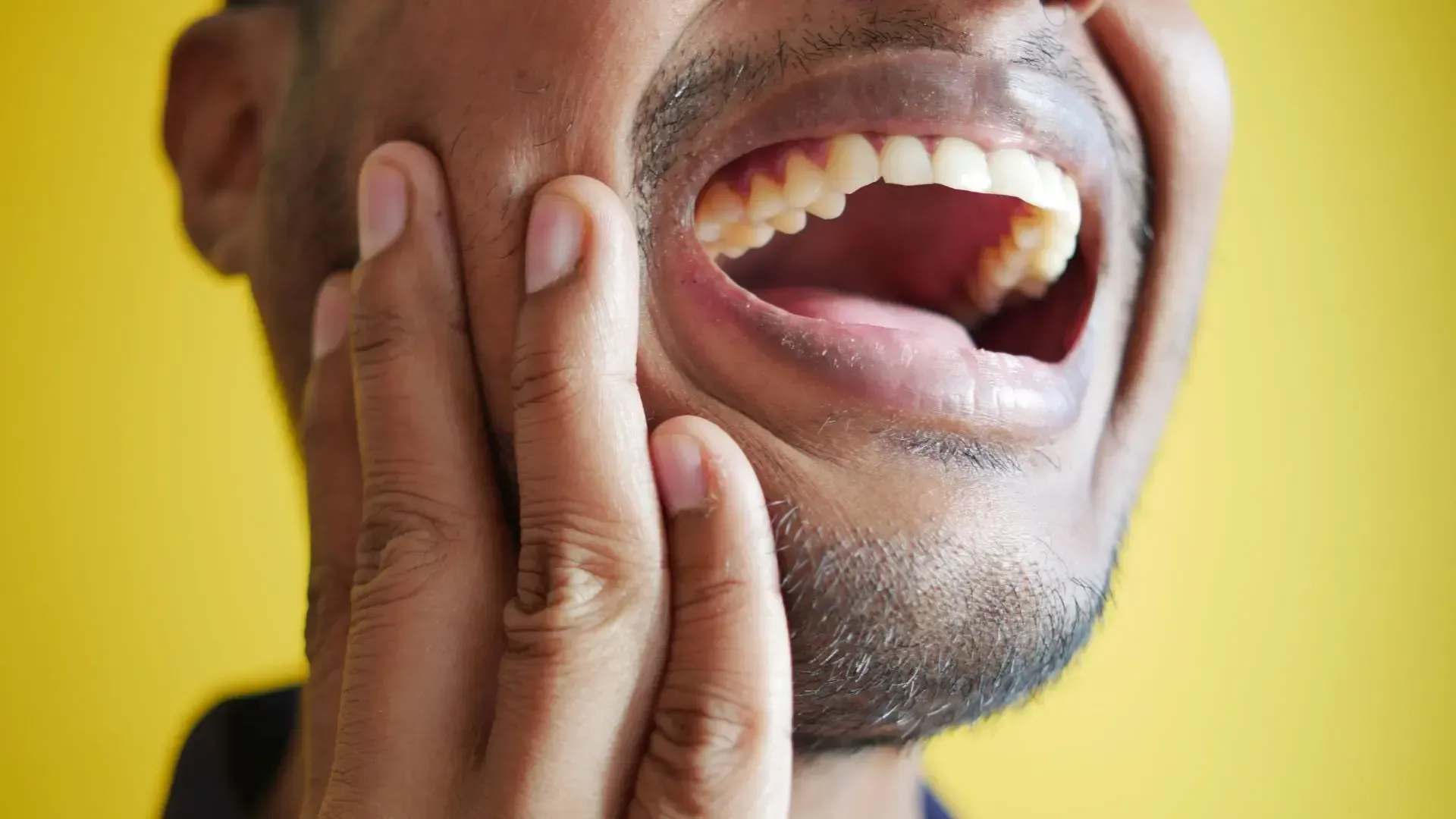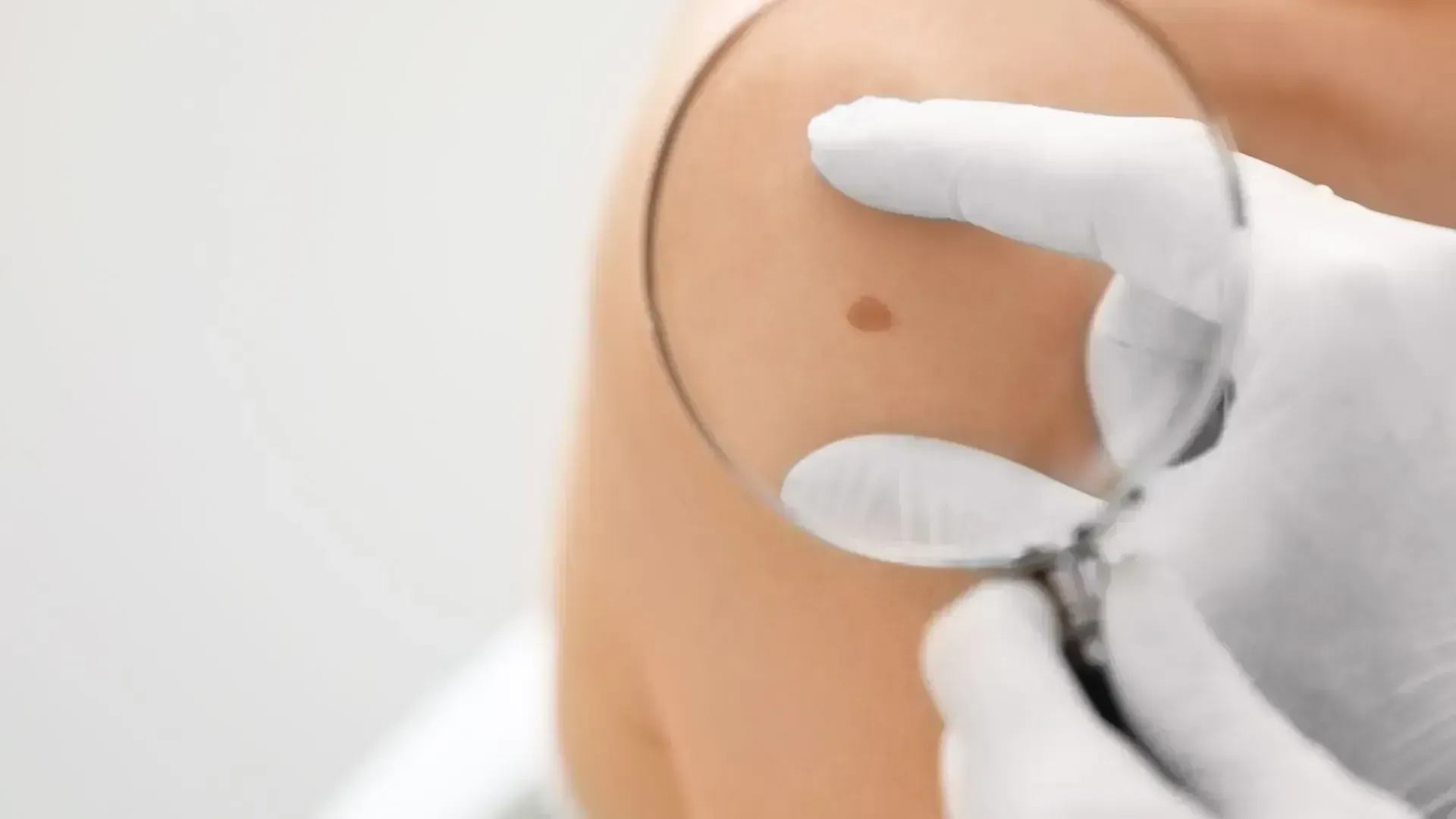Travel Vaccines for India: Complete Health Preparation Guide
Essential Vaccinations, Doses, and Health Precautions for Safe Travel to India
Planning a trip to India is an exciting prospect—from the majestic Taj Mahal to the bustling markets of Delhi, the serene backwaters of Kerala to the spiritual heights of the Himalayas, India offers unforgettable experiences. However, proper health preparation is essential to ensure your journey remains memorable for all the right reasons.
This comprehensive guide will help you understand which vaccinations you need, when to get them, and what other health precautions to take before travelling to India.
Understanding Your Vaccination Needs
Vaccination requirements and recommendations for India depend on several factors: where you're travelling within the country, the duration of your stay, your planned activities, and your current immunisation status. Most health authorities recommend booking a travel health consultation at least six to eight weeks before departure to allow sufficient time for vaccine courses to be completed.[1][2][3]
Routine Vaccinations: Your Foundation
Before considering travel-specific vaccines, ensure you're up to date with routine vaccinations. These include:[4]
· Measles, Mumps, and Rubella (MMR) – particularly important given recent measles outbreaks globally[5]
· Diphtheria, Tetanus, and Pertussis (Tdap) – adults typically need a booster every 10 years[6]
· Polio – a single adult booster is recommended for travel to India[7][6]
· Influenza – annual vaccination is advised[6]
· COVID-19 – ensure you're fully vaccinated according to current guidelines[4][6]
Essential Vaccines for Most Travellers to India
Hepatitis A
Hepatitis A is one of the most common vaccine-preventable diseases affecting travellers to India. This viral liver infection spreads through contaminated food and water, making it a significant risk throughout the country.[1][8][2][9]
What you need to know:
· A single dose provides protection, with a booster at 6-12 months offering long-term immunity[9]
· The vaccine is recommended for all travellers to India[6][10]
· Protection begins approximately two weeks after vaccination
Typhoid Fever
Typhoid fever poses a substantial risk in India, particularly for those visiting smaller towns or rural areas. This bacterial infection spreads through contaminated food and water and can cause severe illness.[6][11]
Vaccination options:
· Injectable vaccine: Single dose, effective for approximately three years[6]
· Oral vaccine: Four capsules taken on alternate days, effective for approximately five years[6]
The oral vaccine must be kept refrigerated and requires you to swallow pills, whilst the injectable option offers convenience for those unable to take oral medications.[6]
Tetanus bacteria enter the body through wounds, cuts, or breaks in the skin. Given that medical facilities may not always be immediately accessible in India, ensuring adequate tetanus protection is crucial.[7]
Adults who completed their childhood vaccination series typically need only a booster dose, which provides protection for 10 years. This vaccine is often combined with diphtheria and pertussis protection.[7]
Vaccines for Specific Travellers
Japanese encephalitis (JE) is a serious mosquito-borne viral infection that can cause severe neurological complications. India reports significant numbers of JE cases annually, with Assam alone accounting for 30-50% of total cases in recent years.[2][6][12]
Who needs this vaccine:
· Travellers spending extended periods in rural areas, particularly during monsoon and post-monsoon seasons (July to November)[13][12][14]
· Those visiting regions with rice fields, pig farms, or marshlands[2]
· Long-term travellers (more than one month)[2]
Areas of higher risk:
Assam, West Bengal, Uttar Pradesh, Bihar, Jharkhand, Odisha, Andhra Pradesh, Telangana, Karnataka, Tamil Nadu, and parts of the Northeast. The vaccine is generally not recommended for Gujarat, Himachal Pradesh, Jammu and Kashmir, Punjab, Rajasthan, and Sikkim.[6][12][13]
The vaccine requires two doses given 28 days apart, so early planning is essential.[15]
India has one of the highest burdens of rabies globally, with an estimated 20,000 deaths annually. Stray dogs are common throughout the country, and rabies exposure can occur even from seemingly minor scratches or licks from infected animals.[16][17][18]
Pre-exposure vaccination is recommended for:
· Travellers visiting rural or remote areas where medical care may be difficult to access[6][19]
· Long-term travellers and expatriates[6]
· Those whose activities may bring them into contact with animals[6]
· Children, who are particularly vulnerable to animal attacks[20]
Important note: Pre-exposure vaccination doesn't eliminate the need for post-exposure treatment if you're bitten or scratched, but it simplifies treatment significantly and eliminates the need for rabies immunoglobulin, which may not be readily available in all areas of India.[19]
The pre-exposure course consists of three doses given over 21-28 days.[19]
Hepatitis B is transmitted through blood and bodily fluids, and India has intermediate to high prevalence of this infection.[2][21]
Consider this vaccine if you:
· May have unprotected sexual contact
· Could be exposed to contaminated needles (including tattoos, piercings, or acupuncture with non-sterile equipment)
· Are a healthcare or aid worker
· May require medical or dental procedures during travel
· Are a long-term traveller
· Participate in contact sports[2]
The standard vaccination course requires three doses over six months, though accelerated schedules are available for last-minute travellers.
Whilst cholera risk for most travellers to India is relatively low, certain situations warrant consideration of vaccination. Cholera spreads through severely contaminated water and food.[21][6]
Vaccination may be recommended for:
· Those travelling to areas with active cholera outbreaks
· Aid workers or healthcare professionals
· Travellers with limited access to safe food and water
· Those visiting remote areas with poor sanitation[22][23]
The oral cholera vaccine also provides some protection against the most common cause of travellers' diarrhoea (enterotoxigenic E. coli), offering an additional benefit.[22]
Understanding Malaria Risk and Prevention
Malaria is a serious mosquito-borne disease present in many parts of India. The risk varies significantly by region and season.[2][24]
Antimalarial medication is strongly recommended for:
· Assam and Odisha states
· Districts of East Godavari, Srikakulam, Vishakhapatnam, and Vizianagaram in Andhra Pradesh
· Districts of Balaghat, Dindori, Mandla, and Seoni in Madhya Pradesh[2][7]
Most other parts of India, including popular tourist destinations like Goa and the Andaman and Nicobar Islands, are considered low risk. However, travellers at higher risk of complications (pregnant women, elderly travellers, those with compromised immune systems, and long-term travellers visiting friends and relatives) may still benefit from antimalarials even in low-risk areas.[2]
There is no risk of malaria in the Lakshadweep Islands.[2]
Three main antimalarial medications are suitable for India:[2][25]
· Atovaquone/proguanil (Malarone) – taken daily, starting 1-2 days before travel and continuing for 7 days after leaving malaria areas[25]
· Doxycycline – taken daily, with similar timing to Malarone
· Mefloquine – taken weekly, starting 2-3 weeks before travel
Your travel health provider will recommend the most appropriate option based on your medical history, the specific areas you're visiting, and the duration of your trip.
Protection Against Mosquito-Borne Diseases
Beyond malaria, several other mosquito-borne diseases pose risks in India, including dengue fever, chikungunya, and Zika virus. Unfortunately, vaccines for these diseases are either not widely available or still in development, making bite prevention crucial.[21][26]
Effective Mosquito Bite Prevention
Use effective insect repellents:
· Products containing DEET (20-50%) provide excellent protection[27][28]
· Picaridin (20%) is equally effective and may be preferred by some travellers[27]
· IR3535 is another effective option[27]
· Apply repellent to all exposed skin and reapply according to product instructions
Wear protective clothing:
· Long-sleeved shirts and long trousers, particularly during dusk and dawn when mosquitoes are most active[29][30]
· Light-coloured clothing makes mosquitoes more visible
· Consider treating clothing with permethrin for additional protection
Use physical barriers:
· Sleep under mosquito nets, ideally treated with insecticide
· Stay in air-conditioned or well-screened accommodation when possible
· Use door and window screens
Time your activities wisely:
· Malaria and Japanese encephalitis mosquitoes primarily bite between dusk and dawn[2][13]
· Dengue-carrying mosquitoes are active during daylight hours[30]
Certificate Requirements and Entry Regulations
India requires a yellow fever vaccination certificate only if you're arriving from a country with risk of yellow fever transmission. If you're travelling directly from New Zealand, Australia, Europe, or North America, this typically doesn't apply to you.[2][6]
However, if you've visited yellow fever-endemic countries (parts of Africa and South America) within six days before entering India, you must present proof of vaccination or face up to six days of isolation upon arrival.[2]
Polio Vaccination for Residents
Indian residents travelling from India to certain countries may be required to show proof of polio vaccination. If this applies to your travel plans, ensure you receive the vaccination at least four weeks before departure.[31][32]

Travellers' diarrhoea, colloquially known as "Delhi belly," affects a significant proportion of visitors to India. While vaccination provides protection against some causes (typhoid, cholera, hepatitis A), careful food and water practices remain essential.[33][34]
Choose wisely:
· Eat freshly cooked, thoroughly heated food
· Avoid raw or undercooked meat, fish, and shellfish
· Be cautious with salads and uncooked vegetables, which may have been washed in tap water
· Peel fruits yourself rather than buying pre-cut fruit
· Stick to busy restaurants and food stalls where turnover is high and food is freshly prepared
Practice good hygiene:
· Wash your hands thoroughly with soap and water before eating
· Use hand sanitiser when soap and water aren't available
· Keep your fingernails short and clean[33]
· Drink only bottled water from sealed bottles, checking that the seal is intact[33]
· Avoid ice in drinks, as it's typically made from tap water[33]
· Use bottled or purified water for brushing teeth
· Consider carrying water purification tablets or a filter bottle for situations where bottled water isn't available[35]
· Stick to hot beverages like tea and coffee, or sealed soft drinks
What to Do If You Become Unwell
Despite precautions, travellers' diarrhoea can still occur. Pack oral rehydration salts and anti-diarrhoeal medication in your travel medical kit. For mild cases, rest, stay hydrated, and allow the illness to pass. However, seek medical attention if you experience:[35]
· High fever (above 38.5°C)
· Blood in stools
· Severe abdominal pain
· Persistent vomiting
· Signs of dehydration
· Symptoms lasting more than three days[36][37]
Planning Your Vaccination Timeline
Proper timing is crucial for travel vaccinations. Here's a recommended timeline:
· Book your travel health consultation[2][3]
· Begin multi-dose vaccines (hepatitis B, rabies, Japanese encephalitis)[38][39][19]
· Receive single-dose vaccines that require time to develop immunity
· Start antimalarial medication if using mefloquine (requires a 2-3 week lead time)
· Complete second doses of multi-dose vaccines
· Follow up on any vaccine reactions or concerns
· Receive any remaining vaccines
· Complete oral typhoid vaccine course
· Pick up antimalarial medication if using atovaquone/proguanil or doxycycline
· Begin atovaquone/proguanil antimalarial medication if recommended[25]
· Begin doxycycline antimalarial medication if recommended
· Continue antimalarial medication as prescribed
· Practice mosquito bite avoidance consistently
· Maintain food and water safety precautions
· Complete your full antimalarial medication course (typically 7 days after leaving malaria areas for atovaquone/proguanil, 28 days for doxycycline and mefloquine)[25]
· Seek medical attention if you develop fever or other symptoms within the year following your return, mentioning your travel history[24]
Additional Health Considerations
India reports a high incidence of tuberculosis. The BCG vaccine is recommended for unvaccinated children under 16 years who will live in India for more than three months, and for certain healthcare workers.[2]
If you're travelling to high-altitude destinations in the Himalayas (above 2,500 metres), be aware of altitude sickness risks. Ascend gradually, stay well-hydrated, and consider discussing preventive medication with your travel health provider if you're planning treks above 3,000 metres.[2]
Comprehensive travel insurance that covers medical treatment and emergency evacuation is essential. Ensure your policy covers all planned activities and pre-existing medical conditions. Keep copies of your insurance documents and emergency contact numbers easily accessible.[35]
Medications and Medical Supplies
Bring adequate supplies of any prescription medications, along with a letter from your doctor explaining their necessity. Indian pharmacies may stock different brands or formulations. Consider packing:[35][40]
· Prescription medications with doctor's letter
· Basic first aid supplies
· Oral rehydration salts
· Anti-diarrhoeal medication
· Pain relievers and fever reducers
· Antihistamines for allergic reactions
· Sunscreen (SPF 50+)
· Insect repellent[35]
Special Considerations for Different Travellers
Pregnant women should consult their healthcare provider well in advance of travel, as some vaccines are contraindicated during pregnancy. Malaria poses particular risks during pregnancy, and travel to high-risk areas may need to be reconsidered.[2]
Children require age-appropriate vaccines and dosing. Some vaccines have minimum age requirements—discuss your child's specific needs with a travel health specialist.[4]
Those with weakened immune systems need individualised advice, as some vaccines may be contraindicated and protection may be less robust. Extra precautions against mosquito-borne diseases and careful food/water hygiene become even more critical.[2]
Travellers over 65 may have increased susceptibility to severe complications from vaccine-preventable diseases. Ensure routine vaccinations (including pneumococcal vaccines) are up to date in addition to travel-specific vaccines.[2]
Every traveller's situation is unique. Your ideal vaccination plan depends on:
· Specific destinations within India
· Urban versus rural travel
· Duration of stay
· Accommodation type (luxury hotels versus budget guesthouses versus rural homestays)
· Planned activities (wildlife safaris, trekking, volunteer work)
· Time of year and season
· Your age, health status, and vaccination history
· Previous travel to similar destinations
A qualified travel health professional can assess your individual risk profile and provide personalised recommendations.[1][8][2]
Where to Get Travel Vaccines in New Zealand
Travel vaccines are available through:
· Your general practice (some may stock travel vaccines; others may refer you to a specialist clinic)
· Dedicated travel health clinics
· Some pharmacies offering travel health services
Note that most travel vaccines are not funded under New Zealand's public health system and will incur costs. However, the investment in protecting your health is worthwhile compared to the potential consequences of vaccine-preventable diseases.
India offers incredible cultural richness, stunning landscapes, and unforgettable experiences. Proper health preparation—including appropriate vaccinations, antimalarial medication where indicated, and consistent preventive practices—allows you to enjoy your journey with confidence and peace of mind.
Start planning your health preparation at least six to eight weeks before departure. Consult a qualified travel health professional who can provide advice tailored to your specific travel plans and health needs. Combined with sensible precautions around food, water, and mosquito bites, appropriate vaccinations form the cornerstone of safe travel to India.
By taking these steps, you're not just protecting yourself—you're also showing respect for the communities you'll visit by minimising the risk of introducing or spreading infectious diseases. With thorough preparation, you can focus on what truly matters: immersing yourself in the extraordinary experiences that await you in India.
Disclaimer: This article provides general health information for educational purposes only and should not replace professional medical advice. Every traveller's health needs are different. Please consult with a qualified healthcare professional or travel medicine specialist for personalised advice before travelling. Medical recommendations can change, and this information reflects guidance current at the time of publication. Always verify the latest travel health requirements with official sources before departure.
Written by Dr Bernard Teo
MBChB, FRNZCGP, Dip Occupational Medicine (Distinction), Dip Dermatology General Practitioner & Medical Director, 1 Health Medical Clinic, Christchurch
1. https://pmc.ncbi.nlm.nih.gov/articles/PMC4635693/
2. https://travelhealthpro.org.uk/country/105/india
3. https://www.gov.uk/foreign-travel-advice/india/health
4. https://www.vaccinehub.com.au/travel/india
5. https://innovapath.us/index.php/IN/article/view/43
6. https://www.passporthealthusa.com/destination-advice/india/
7. https://www.tmb.ie/destinations/vaccinations-for-india
8. https://pmc.ncbi.nlm.nih.gov/articles/PMC4896562/
9. https://healthclinics.superdrug.com/travel-vaccinations/india/
10. https://wwwnc.cdc.gov/travel/destinations/traveler/none/india
11. https://www.nimapharmacy.co.uk/do-you-need-a-typhoid-vaccine-before-travelling-abroad/
12. https://ncvbdc.mohfw.gov.in/index1.php?lang=1&level=2&sublinkid=5926&lid=3760
14. https://www.cdc.gov/japanese-encephalitis/data-maps/index.html
15. https://pmc.ncbi.nlm.nih.gov/articles/PMC8982926/
16. https://www.mdpi.com/1999-4915/14/1/155
17. http://www.scirp.org/journal/doi.aspx?DOI=10.4236/wjv.2014.41002
18. https://pmc.ncbi.nlm.nih.gov/articles/PMC7907975/
19. https://pmc.ncbi.nlm.nih.gov/articles/PMC4083152/
20. https://smtravelclinic.co.uk/travel-vaccines-india/
21. https://worldtravelprotection.com/travel-insights/india-focus-health-insights/
22. https://www.mdpi.com/2076-393X/8/4/606/pdf
23. https://pmc.ncbi.nlm.nih.gov/articles/PMC7711912/
24. https://patient.info/travel-and-vaccinations/india
25. https://www.cdc.gov/malaria/hcp/drug-malaria/index.html
26. https://www.smartraveller.gov.au/destinations/asia/india
28. https://pmc.ncbi.nlm.nih.gov/articles/PMC6830767/
29. https://www.safetravel.govt.nz/before-you-go/health/mosquito-borne-illness-prevention
30. https://wwwnc.cdc.gov/travel/notices/level1/dengue-global
32. https://mohfw.gov.in/sites/default/files/08285260748Requirement.pdf
33. https://www.intrepidtravel.com/adventures/how-to-avoid-delhi-belly-in-india/
34. https://www.reddit.com/r/solotravel/comments/xdlstu/is_it_possible_to_travel_through_india_without/
35. https://indiasomeday.com/en/medical-travel-kit-checklist-for-india/
36. https://my.clevelandclinic.org/health/diseases/7315-travelers-diarrhea
37. https://www.mayoclinic.org/diseases-conditions/travelers-diarrhea/symptoms-causes/syc-20352182
38. http://www.tandfonline.com/doi/full/10.4161/21645515.2014.979646
39. https://pmc.ncbi.nlm.nih.gov/articles/PMC6142657/
40. https://wwwnc.cdc.gov/travel/destinations/india/traveler/packing-list
41. https://authenticdigital.nz/blog/google-seo-guidelines
42. https://brandnewcopy.com/content-google-e-e-a-t-guidelines/
43. https://www.medsafe.govt.nz/profs/datasheet/m/Malaronetab.pdf
44. https://dx.plos.org/10.1371/journal.pone.0218033
45. https://dx.plos.org/10.1371/journal.pntd.0004072
46. https://www.tandfonline.com/doi/full/10.1080/14760584.2022.2003709
47. https://journal.microbe.ru/jour/article/view/1210
48. https://dx.plos.org/10.1371/journal.pone.0002323
49. https://www.jci.org/articles/view/184297
50. https://www.nature.com/articles/ejhg2012278
51. https://www.ijmh.org/portfolio-item/l15060881222/
52. http://www.ijpscr.info/index.php/ijpscr/article/view/10
53. https://www.semanticscholar.org/paper/ca8e148c89e8ba6b1ca25aa464fa6f590c2a611a
54. https://pmc.ncbi.nlm.nih.gov/articles/PMC2589588/
55. https://pmc.ncbi.nlm.nih.gov/articles/PMC8437452/
56. https://www.healthytravel.ch/page/?id=123B8413-F95C-4E73-9337-2C724B140D3A
57. https://innovareacademics.in/journals/index.php/ijap/article/view/46723
58. https://journals.lww.com/10.1097/MS9.0000000000000945
59. https://www.semanticscholar.org/paper/b8de82bdd52232b5710cbf42ff21bdfce4e6d2da
60. https://www.semanticscholar.org/paper/ddd1e930fb9026df63d9c6ef801533cd4a50b52d
61. https://academic.oup.com/jtm/article-lookup/doi/10.1111/j.1708-8305.2006.00043.x
63. https://journals.sagepub.com/doi/10.1310/hpj4911-999
64. http://www.tandfonline.com/doi/full/10.1179/2047772413Z.000000000167
65. https://pmc.ncbi.nlm.nih.gov/articles/PMC8437681/
66. https://pmc.ncbi.nlm.nih.gov/articles/PMC9288936/
67. https://pmc.ncbi.nlm.nih.gov/articles/PMC4928529/
68. https://pmc.ncbi.nlm.nih.gov/articles/PMC7840391/
69. https://pmc.ncbi.nlm.nih.gov/articles/PMC11945930/
70. http://karetrip.com/blogs/checklist-for-traveling-to-india-for-medical-treatment
71. https://www.odomosprotect.com
72. https://natboard.edu.in/ejournal/articledtl?x=Y3RQUUdRcTlmN3VZc3VjSXR3NVpodz09
73. https://www.ijcmph.com/index.php/ijcmph/article/view/14631
74. https://sshrbjournal.org/articles/120
75. http://www.thieme-connect.de/DOI/DOI?10.1055/s-0043-1761283
76. https://www.frontiersin.org/article/10.3389/fmicb.2018.01753/full
77. https://www.semanticscholar.org/paper/fc35e70db4873f2dfbe7ecb818891845c9f1744b
78. https://journals.lww.com/10.4103/0974-777X.193749
79. https://journals.lww.com/10.1097/JS9.0000000000000522
80. https://gh.bmj.com/lookup/doi/10.1136/bmjgh-2021-008315
81. https://pmc.ncbi.nlm.nih.gov/articles/PMC4928530/
82. https://pmc.ncbi.nlm.nih.gov/articles/PMC10821703/
83. https://pmc.ncbi.nlm.nih.gov/articles/PMC10656793/
84. https://pmc.ncbi.nlm.nih.gov/articles/PMC8133530/
85. https://pmc.ncbi.nlm.nih.gov/articles/PMC4635930/
86. https://developers.google.com/search/docs/fundamentals/creating-helpful-content
87. https://firstpage.nz/learning-centre/seo/googles-eat-guide/
89. https://travelclinic.co.nz/vaccinations/
90. https://www.nzie.ac.nz/blog-basic-guide-to-search-engine-optimisation-seo/
91. https://www.blackpepper.co.nz/blog/e-e-a-t-in-seo-what-is-it-and-why-is-it-important
92. https://www.travelhealth.com.au/destinations/asia/india/
93. https://www.searchenginejournal.com/google-e-e-a-t-how-to-demonstrate-first-hand-experience/474446/
94. https://travel.state.gov/en/international-travel/travel-advisories/india.html
95. https://www.insightonline.co.nz/blog/what-is-seo
96. https://www.semanticscholar.org/paper/b660db082418f1c908a20e3f4e4eeb9394595797
97. https://academic.oup.com/jtm/article/doi/10.1093/jtm/taae065/7656739
98. https://www.semanticscholar.org/paper/5fb18f546834414b9bff5da506f7734af69a9b7c
99. https://www.ijcmph.com/index.php/ijcmph/article/view/8139
100. https://www.tandfonline.com/doi/full/10.1080/21645515.2020.1741997
101. https://journals.lww.com/10.4103/ijcm.ijcm_600_21
102. https://www.semanticscholar.org/paper/6b637bd3303cb6e7fc184d80cd9a8694d44d53e4
103. https://onlinelibrary.wiley.com/doi/10.1111/jvh.13929
104. https://ijcmph.com/index.php/ijcmph/article/view/10912
105. https://pmc.ncbi.nlm.nih.gov/articles/PMC6319798/
106. http://thescipub.com/pdf/10.3844/ajidsp.2008.104.108
107. https://pmc.ncbi.nlm.nih.gov/articles/PMC1120319/
108. https://pmc.ncbi.nlm.nih.gov/articles/PMC5864484/
109. https://ospopac.com/journals/pulmonology-study-treatment/Travelling-Contagions.pdf
110. https://pmc.ncbi.nlm.nih.gov/articles/PMC5063019/
111. https://worldwise.co.nz/travel-vaccinations/asia/india/
112.https://worldwise.co.nz/travel-disease/typhoid/
113. https://bpac.org.nz/BPJ/2011/december/docs/bpj_41_travellers_pages_30-39.pdf
114.http://www.tandfonline.com/doi/abs/10.4161/hv.27234
115. https://www.semanticscholar.org/paper/2e52c655bf2c9a94cbf34e7ef3fc278c42e252ec
116.http://link.springer.com/10.1007/978-3-642-73772-5_48
117. http://journals.lww.com/00001432-201210000-00005
118. https://academic.oup.com/jtm/article/doi/10.1093/jtm/taaa168/5906302
119.https://www.semanticscholar.org/paper/69c84de2beb7f00676825eb234aac9129c31b59b
120. https://academic.oup.com/jtm/article/26/Supplement_1/S3/5184561
121.https://www.healthlinejournal.org/ojs/healthline/article/view/H752
122. https://pmc.ncbi.nlm.nih.gov/articles/PMC1181261/
123. https://pmc.ncbi.nlm.nih.gov/articles/PMC1199013/
124. https://pmc.ncbi.nlm.nih.gov/articles/PMC6668228/
125. https://pmc.ncbi.nlm.nih.gov/articles/PMC10363514/
126. https://pmc.ncbi.nlm.nih.gov/articles/PMC4001331/
127. https://worldwise.co.nz/travel-disease/
128. https://bpac.org.nz/bpj/2011/december/travellers.aspx
129. https://pmc.ncbi.nlm.nih.gov/articles/PMC4635693/
130. https://www.cdc.gov/yellow-book/hcp/asia/india.html
131. https://travelhealthpro.org.uk/country/105/india
132. https://www.gov.uk/foreign-travel-advice/india/health
133. https://www.vaccinehub.com.au/travel/india
134. https://wwwnc.cdc.gov/travel/destinations/traveler/none/india
135. https://www.passporthealthusa.com/destination-advice/india/
136. https://www.tmb.ie/destinations/vaccinations-for-india
137. https://pmc.ncbi.nlm.nih.gov/articles/PMC4896562/
138. https://healthclinics.superdrug.com/travel-vaccinations/india/
139. https://www.cdc.gov/hepatitis-a/hcp/vaccine-administration/index.html
140. https://www.cdc.gov/vaccines/hcp/current-vis/hepatitis-a.html
141.https://www.cdc.gov/vaccines/hcp/imz-schedules/child-adolescent-notes.html
142. https://www.nimapharmacy.co.uk/do-you-need-a-typhoid-vaccine-before-travelling-abroad/
143. https://pmc.ncbi.nlm.nih.gov/articles/PMC4584884/
144. https://www.cdc.gov/vaccines/hcp/current-vis/typhoid.html
146. https://www.cdc.gov/vaccines/hcp/current-vis/downloads/typhoid.rtf
147. https://ncvbdc.mohfw.gov.in/index1.php?lang=1&level=2&sublinkid=5926&lid=3760
148. https://www.vax-before-travel.com/vaccines/ixiaro-japanese-encephalitis-vaccine
149. https://www.cdc.gov/japanese-encephalitis/hcp/vaccine/index.html
150. https://clarihealth.com/sg/vaccinations/japanese-encephalitis/
152. https://www.cdc.gov/japanese-encephalitis/data-maps/index.html
153. https://www.mdpi.com/1999-4915/14/1/155
154. http://www.scirp.org/journal/doi.aspx?DOI=10.4236/wjv.2014.41002
155. https://pmc.ncbi.nlm.nih.gov/articles/PMC7907975/
156. https://www.avma.org/news/cdc-updates-recommendation-human-rabies-vaccination
157. https://www.fda.gov/media/75709/download
158. https://www.cdc.gov/rabies/hcp/clinical-care/pre-exposure-prophylaxis.html
159. https://pmc.ncbi.nlm.nih.gov/articles/PMC4083152/
160. https://smtravelclinic.co.uk/travel-vaccines-india/
161.https://worldtravelprotection.com/travel-insights/india-focus-health-insights/
162. https://www.mdpi.com/2076-393X/8/4/606/pdf
163. https://pmc.ncbi.nlm.nih.gov/articles/PMC7711912/
164. https://patient.info/travel-and-vaccinations/india
165. https://www.cdc.gov/malaria/hcp/drug-malaria/index.html
166. https://www.smartraveller.gov.au/destinations/asia/india
168. https://pmc.ncbi.nlm.nih.gov/articles/PMC6830767/
169. https://www.safetravel.govt.nz/before-you-go/health/mosquito-borne-illness-prevention
170. https://wwwnc.cdc.gov/travel/notices/level1/dengue-global
172. https://mohfw.gov.in/sites/default/files/08285260748Requirement.pdf
173. https://www.intrepidtravel.com/adventures/how-to-avoid-delhi-belly-in-india/
174. https://www.reddit.com/r/solotravel/comments/xdlstu/is_it_possible_to_travel_through_india_without/
175. https://indiasomeday.com/en/medical-travel-kit-checklist-for-india/
176. https://my.clevelandclinic.org/health/diseases/7315-travelers-diarrhea
177.https://www.mayoclinic.org/diseases-conditions/travelers-diarrhea/symptoms-causes/syc-20352182
178. https://wwwnc.cdc.gov/travel/destinations/india/traveler/packing-list
179. https://www.immunize.org/wp-content/uploads/catg.d/p2081.pdf
180. https://immunisationhandbook.health.gov.au/contents/vaccine-preventable-diseases/hepatitis-a
181. https://www.tropmed.org/rabies-guidelines/
182. https://info.health.nz/immunisations/vaccines-aotearoa/hepatitis-a-hep-a-vaccine
183. https://pemportal.squarespace.com/s/RabiesPEPPrEPFactSheet.pdf
184. https://www.msdmanuals.com/professional/infectious-diseases/immunization/hepatitis-a-hepa-vaccine
185. https://immunisationhandbook.health.gov.au/contents/vaccine-preventable-diseases/typhoid-fever
187. http://www.cdc.gov/mmwr/volumes/74/wr/mm7422a3.htm?s_cid=mm7422a3_w
188. http://www.cdc.gov/mmwr/volumes/74/wr/mm7402a3.htm?s_cid=mm7402a3_w
189. http://www.cdc.gov/mmwr/volumes/74/wr/mm7402a2.htm?s_cid=mm7402a2_w
191.https://natboard.edu.in/ejournal/articledtl?x=Y3RQUUdRcTlmN3VZc3VjSXR3NVpodz09
192. https://www.ingentaconnect.com/content/10.4140/TCP.n.2025.402
193. https://academic.oup.com/ofid/article/doi/10.1093/ofid/ofae631.2030/7986850
194. http://www.cdc.gov/mmwr/volumes/74/wr/mm7406a1.htm?s_cid=mm7406a1_w
195. https://www.ijcmph.com/index.php/ijcmph/article/view/14631
196. https://jaspi.saspi.in/narrative-review_jaspi_vol3issue2/
197. https://pmc.ncbi.nlm.nih.gov/articles/PMC4928530/
198. https://pmc.ncbi.nlm.nih.gov/articles/PMC8982926/
199. https://pmc.ncbi.nlm.nih.gov/articles/PMC11737654/
200. https://www.tandfonline.com/doi/pdf/10.1080/21645515.2019.1692564?needAccess=true
201. https://bmjpublichealth.bmj.com/lookup/doi/10.1136/bmjph-2024-001290
202. https://pmc.ncbi.nlm.nih.gov/articles/PMC8148651/
203. https://healthify.nz/medicines-a-z/v/vaccinations-international-travel
205. https://abctravelclinic.ca/vaccines-for-india/
207. https://www.healthytravel.ch/page/?id=123B8413-F95C-4E73-9337-2C724B140D3A
209. https://www.vax-before-travel.com/travel-vaccines
210. https://pmc.ncbi.nlm.nih.gov/articles/PMC4514238/
211.https://pmc.ncbi.nlm.nih.gov/articles/PMC8408895/
212. https://www.safetravel.govt.nz/before-you-go/health/diseases
214. https://tripprep.com/destinations/india
215. https://wwwnc.cdc.gov/travel
216. https://onlinelibrary.wiley.com/doi/10.1155/2024/8899638
217. http://medrxiv.org/lookup/doi/10.1101/2024.04.30.24306647
218. http://weekly.chinacdc.cn/en/article/doi/10.46234/ccdcw2021.270
219. https://www.semanticscholar.org/paper/a57bc72cd88f2835d5f2ccf8f1f15794189c718e
220. http://www.cdc.gov/mmwr/volumes/73/wr/mm7320a3.htm?s_cid=mm7320a3_w
221. https://linkinghub.elsevier.com/retrieve/pii/S0264410X03008156
222. https://onlinelibrary.wiley.com/doi/10.1111/jvh.14003
223. https://journals.lww.com/00126334-200811010-00006
224. https://academic.oup.com/jid/article-lookup/doi/10.1093/infdis/169.5.996
225. https://www.tandfonline.com/doi/full/10.1080/21645515.2017.1358326
226. https://pmc.ncbi.nlm.nih.gov/articles/PMC9925137/
227. https://www.cdc.gov/mmwr/volumes/69/rr/pdfs/rr6905a1-H.pdf
228. https://pmc.ncbi.nlm.nih.gov/articles/PMC5657960/
229. https://pmc.ncbi.nlm.nih.gov/articles/PMC5812475/
230. https://pmc.ncbi.nlm.nih.gov/articles/PMC9925138/
231. https://pmc.ncbi.nlm.nih.gov/articles/PMC10794064/
232. https://pmc.ncbi.nlm.nih.gov/articles/PMC7004400/
233. https://pmc.ncbi.nlm.nih.gov/articles/PMC7004394/
235. https://www.immune.org.nz/vaccine/havrix
Have Questions About Your Health?
Our clinicians at 1 Health are here to help — whether it’s GP care, dental, travel vaccines, or facial aesthetics. Book a consultation anytime.
Book Online:
https://www.1health.nz/contact
Call:
Disclaimer:
This article is for general information only and is not medical advice. Every person’s health situation is different. For personalised guidance or diagnosis, please consult a qualified clinician.














